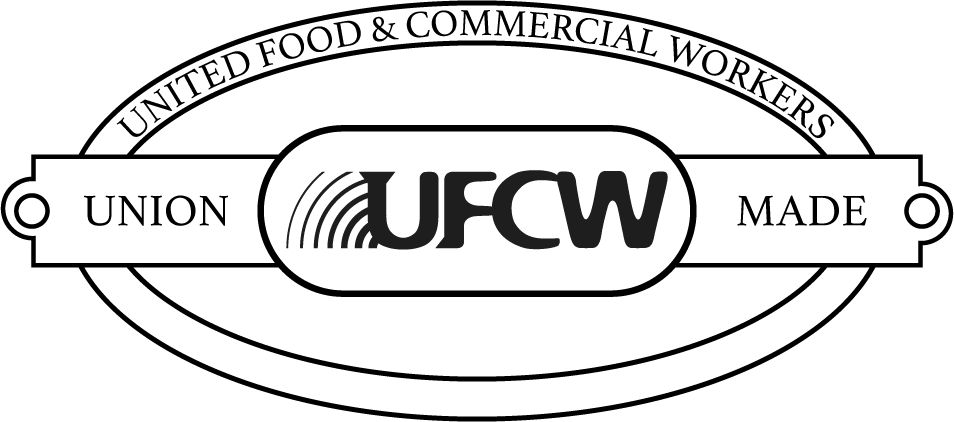We can sum up what a union is pretty easily — as for all of the systems and procedures that make your union tick, it can be overwhelming to wrap your head around all of these concepts.
That’s why we put together this master glossary so you always have something to refer back to whenever you’re navigating anything in the union world. From organizing, to bargaining to grievance procedures, we’ve got you covered.
Authorization Card
An authorization card is a form you sign when you want a union at your workplace. In some cases, these cards also let you confirm that you’re ready to have an election to vote on starting a union.
Bargaining Agent
When you start a union, the larger union you join becomes your bargaining agent. In our case, UFCW will have the duty to help you and your coworkers bargain for the best union contract with your employer.
Bargaining Rights
Your legal right to negotiate the way your workplace is set up is the basis of your bargaining rights, as guaranteed by the rights outlined in the National Labor Relations Act (NLRA).
Bargaining Unit
When you start to unionize, everyone who is able to vote in your union election will become part of a bargaining unit after your election. That same group of people will then be who’s responsible for negotiating and ratifying the contract that will represent you in the end.
Who can or can’t join your bargaining unit is defined by the NLRA and legal precedent.
Card Check
In some cases, you can start a union without a formal NLRB election. You can use a card check to prove to the NLRB that a majority of workers in your proposed bargaining unit have signed authorization cards. If your employer recognizes these cards, you’re already prepared to start a union!
Collective Bargaining
Collective bargaining is what we call the process of negotiating your working conditions between you and your employer when making your union contract.
Grievance
Whenever your supervisor fails to meet the standards of your union contract, you may file a grievance against them. This is a formal complaint that includes a fair process to decide the outcome. This is a very than what happens at a nonunion shop where the employer is the ultimate decider on whether or not what they are doing is right or wrong.
Grievance / arbitration is the fair way you can deal with your employer when they violate your union contract. a complaint process when your employer violates your union contract. With the help of a representative or shop steward, you will be able to work through these procedures. Grievances serve to make sure you aren’t, for example, disciplined or fired unfairly.
Labor/Union Organizers
When you want to start a union at your workplace, we will connect you with union organizers who will be your guide as you talk to your coworkers, build committees, and organize your workplace.
Organizing Committee
Before you start a union, you will work with labor organizers to build an organizing committee. This committee is a crack team of your most reliable and trusted co-workers who help get everybody else at your work on board. Together you’ll connect with the rest of your co-workers, get their authorization cards signed, share petitions and build more support from your coworkers and the community.
Picketing
When you see people outside of their workplace carrying signs and passing out flyers, you’re seeing a picket. A picketing action can be for protesting working conditions or illegal or unfair actions taken by the employer, and a formal picket includes these key ingredients: workers with signs who are moving in a line at the entrance of their workplace who, in many cases, are discouraging people from entering their business during their action.
We engage in picketing to build awareness of our fights by letting the broader public know what’s happening at our workplace. And the more our employers see that our community is ready stand by us, the more they’re likely to listen to our demands.
Rank & File
The rank & file of a union refers to the workers in our union. The rank and file is where strength of the labor movement lies. This rank and file are what makes our companies successful and when the rank and file are organized, they can be successful along with the company.
Ratification
Ratification is the last step in making a union contract, where you and your coworkers vote to approve the contract itself.
Shop Steward
If you want to help stand up for your coworkers at a union shop, you might become a shop steward. You get training so that you can support coworkers in grievances and make sure your employer follows the word of your contract, while still doing the regular tasks in your job.
Tentative Agreement
During bargaining: when both your union bargaining committee and your employer settle on a section of your contract, you have reached a tentative agreement that allows you to move on to the next subject of bargaining. You work through this process until you have reached tentative agreements across your entire contract, and once you have, you and your co-workers can move to ratify it!
Union Bug / Label

That cute little icon you see on union-made products is what we call a union bug.
Union Contract
Your union contract is the document laying out all of your working conditions, benefits, and more, that you bargain for with your employer. Learn more about how union contracts can help you make your work better!
Union Representative
A union representative is an employee of the union that works with you to make sure you and your coworkers know everything about your contract and helps enforce it. Union reps are here to have your back in any disciplinary meetings you face, and to support you in any grievances you may file with your employer.
